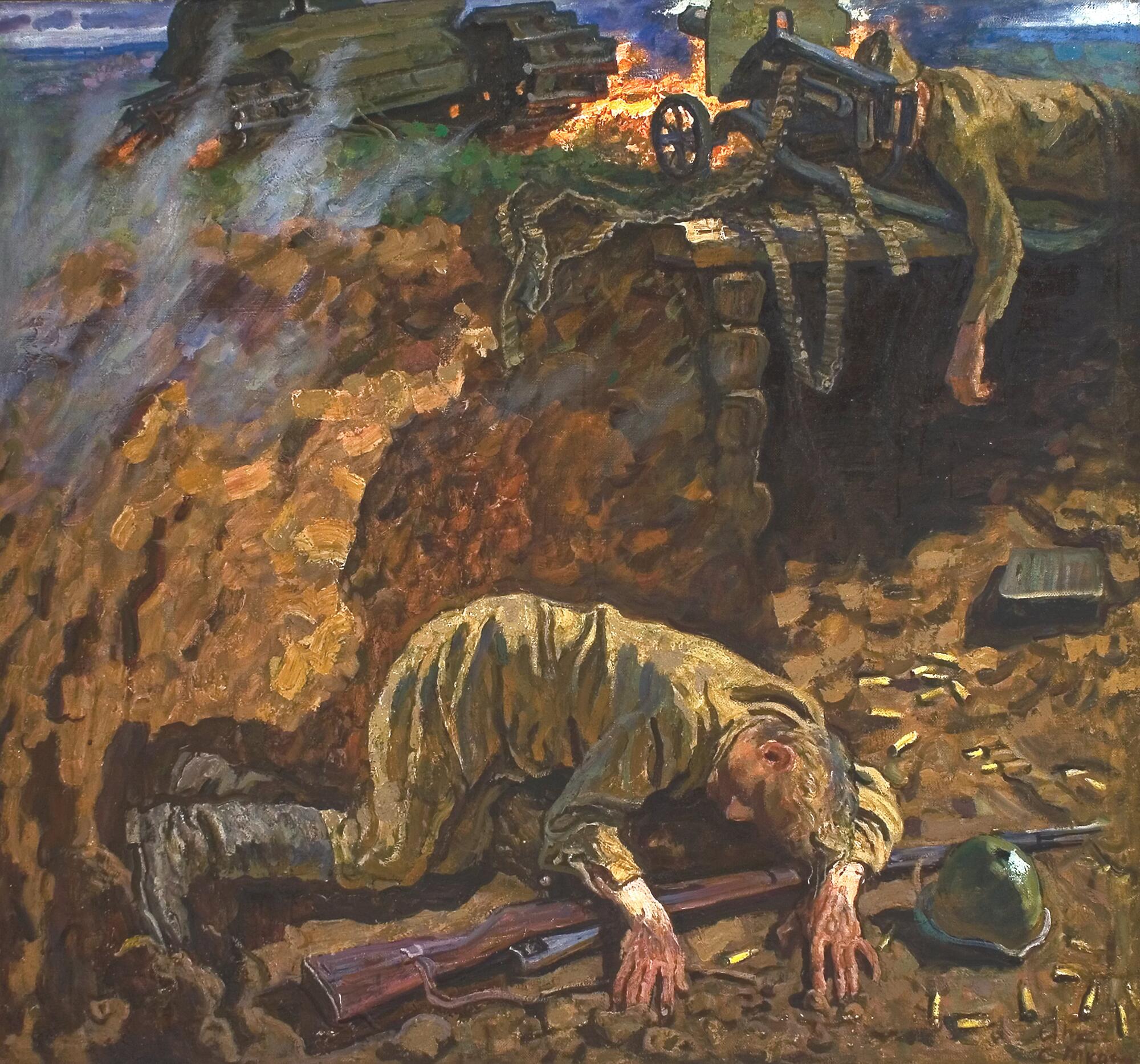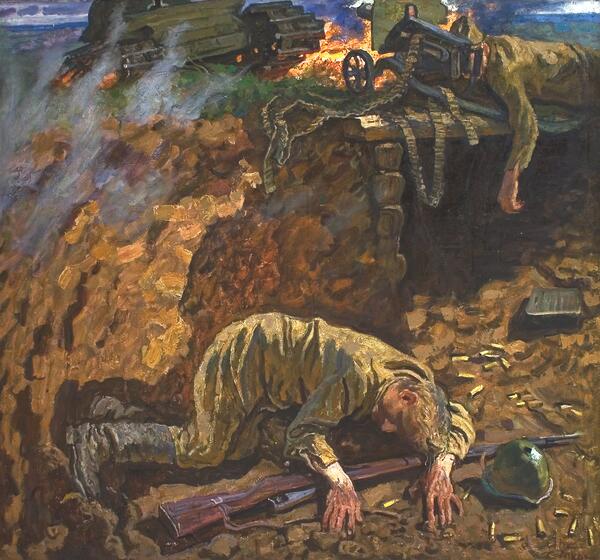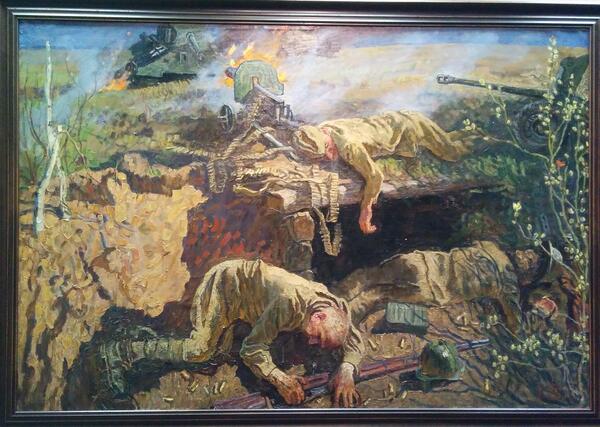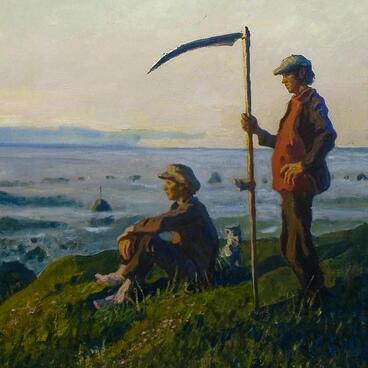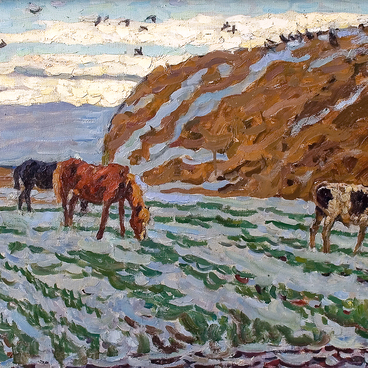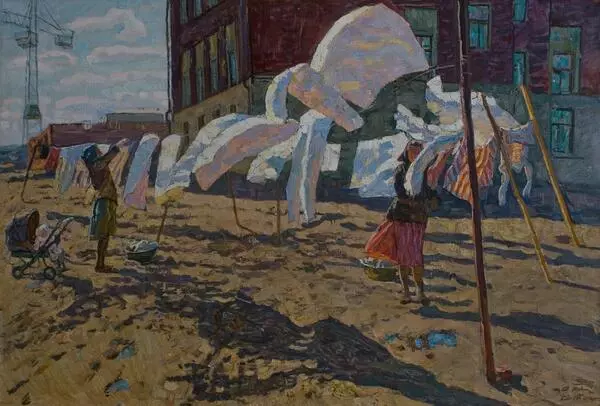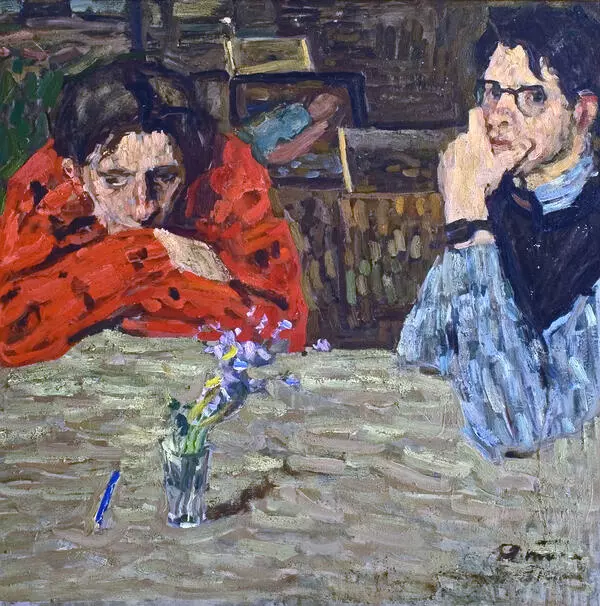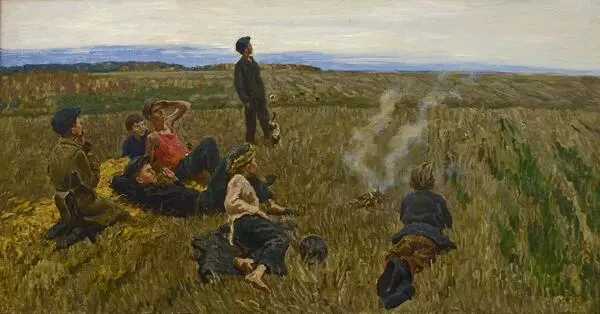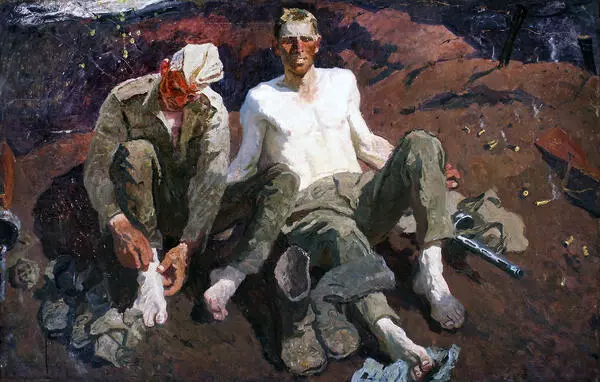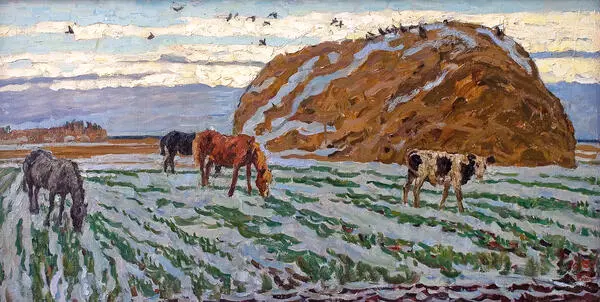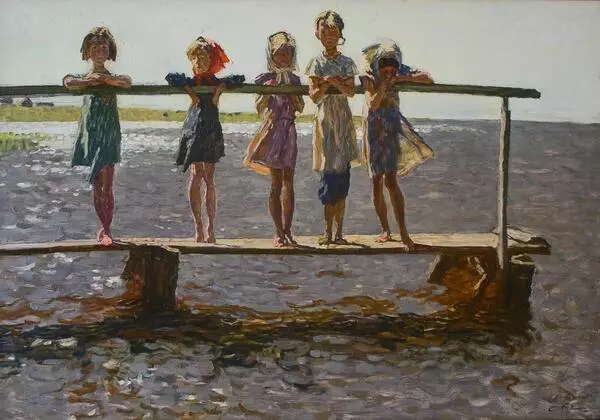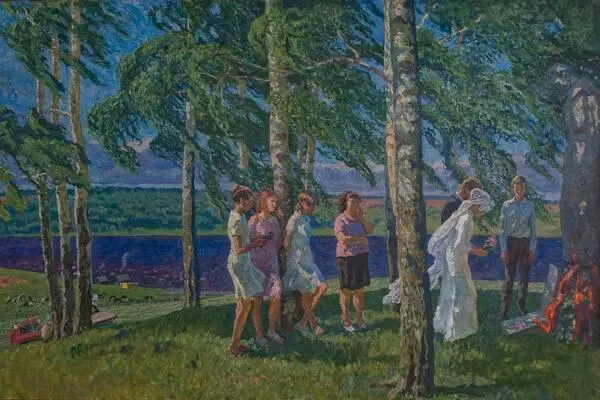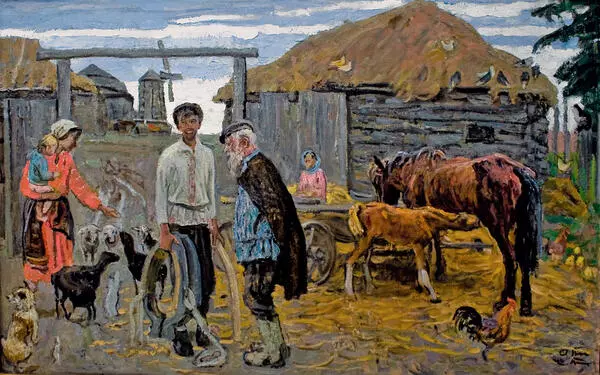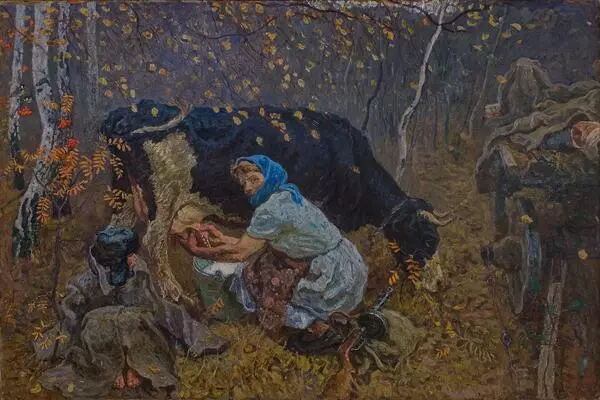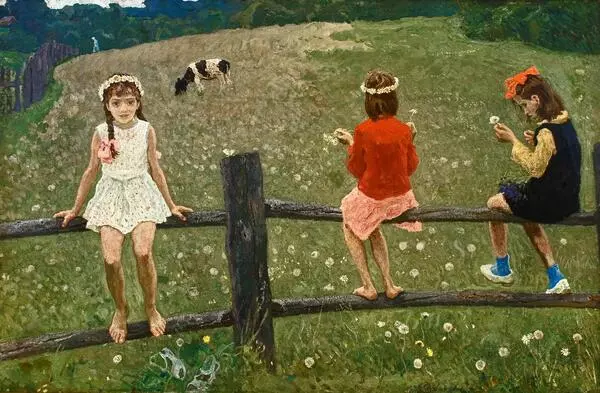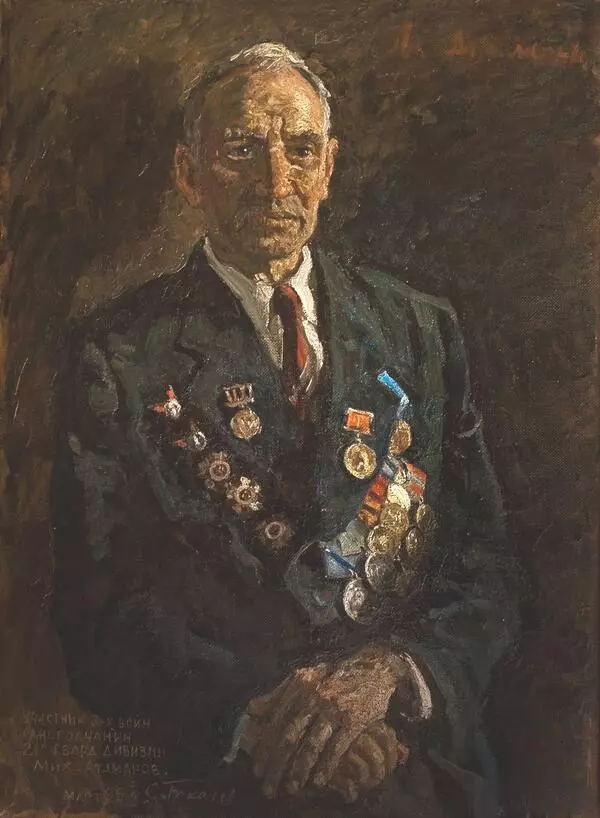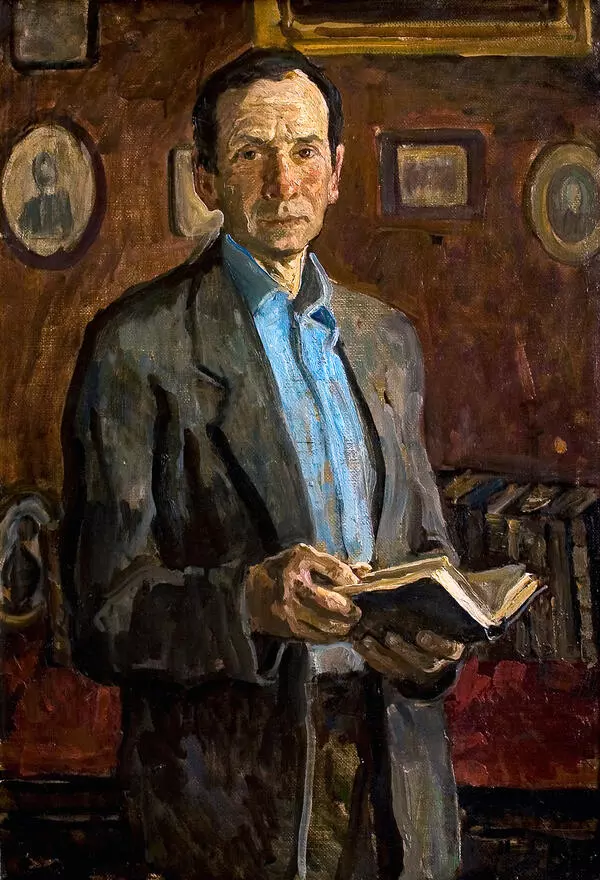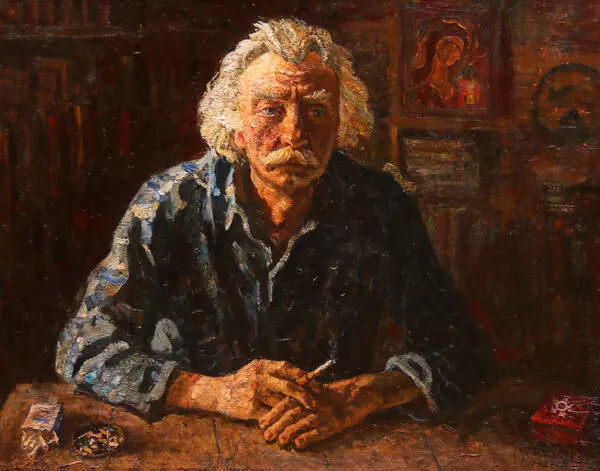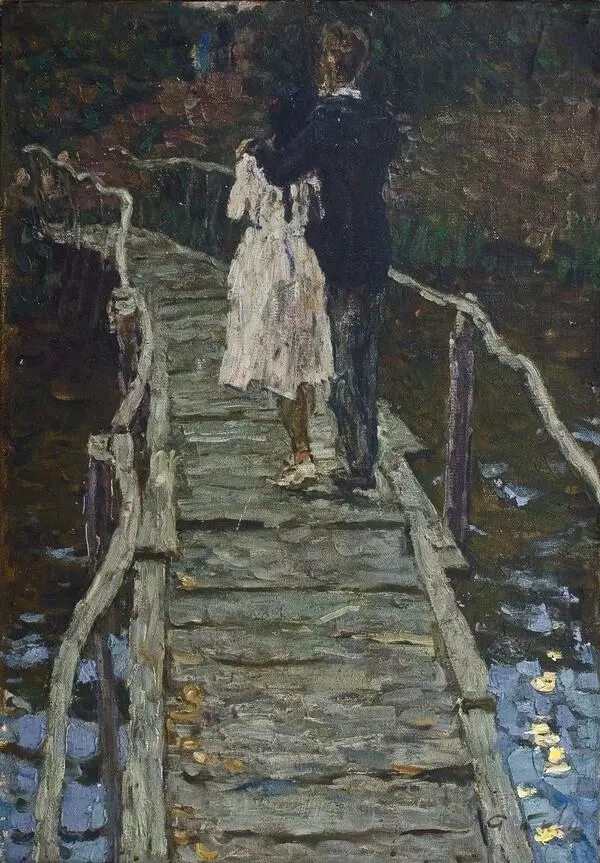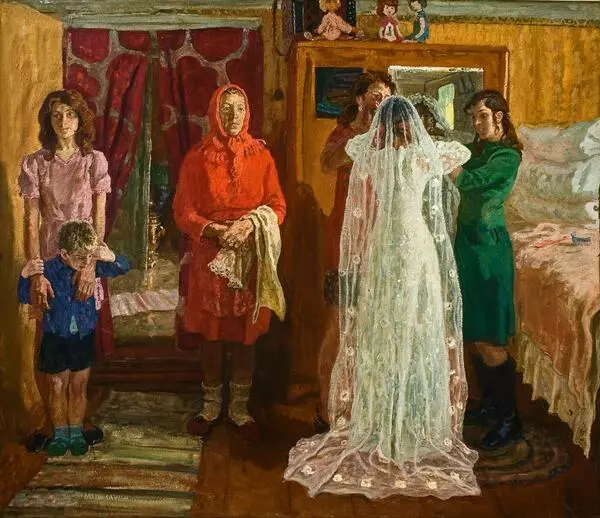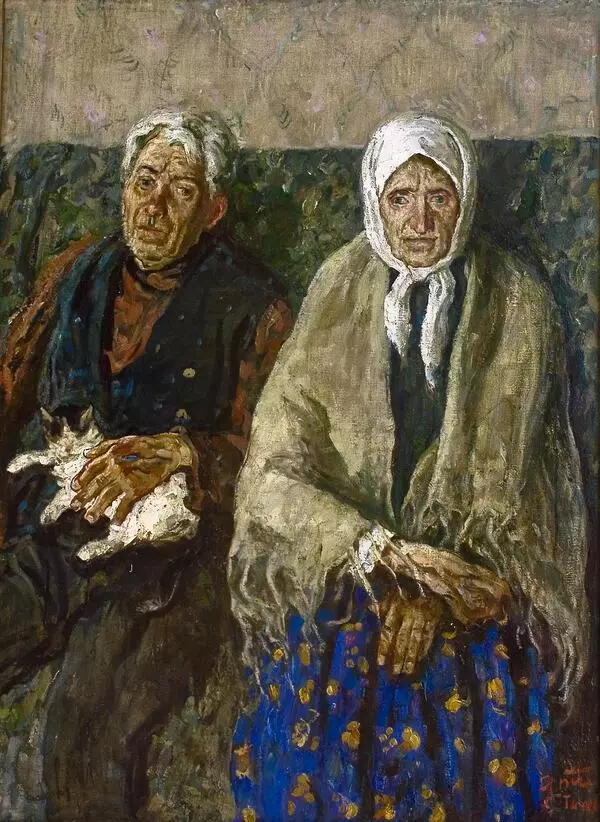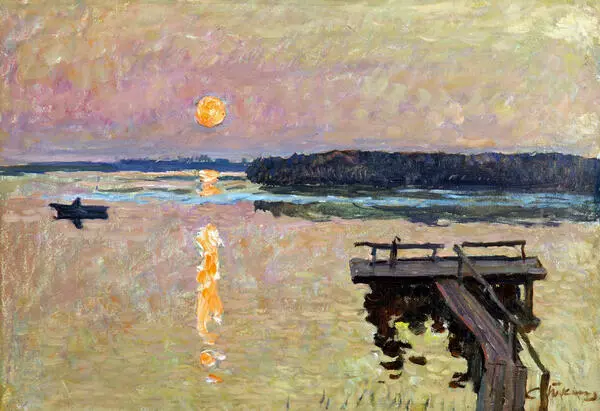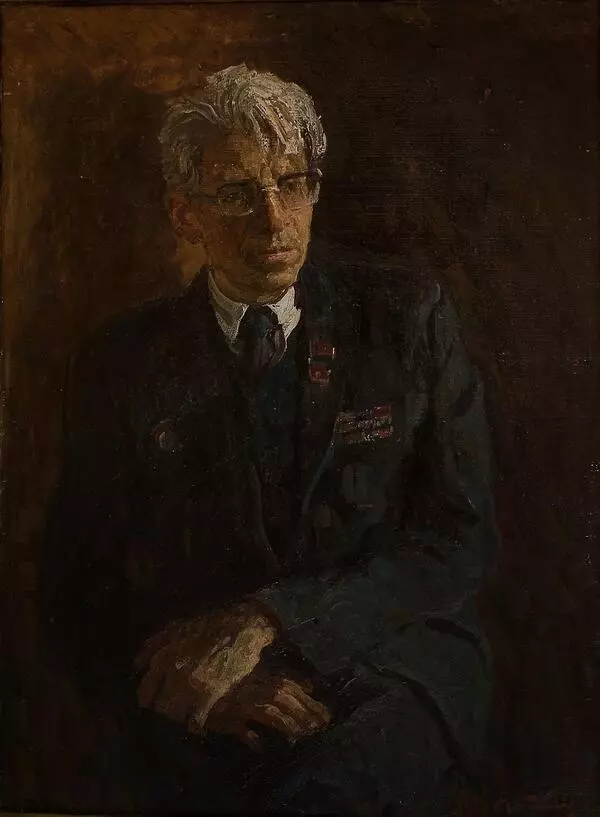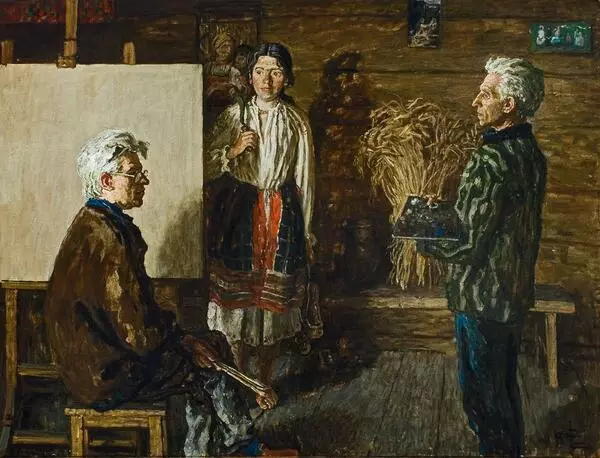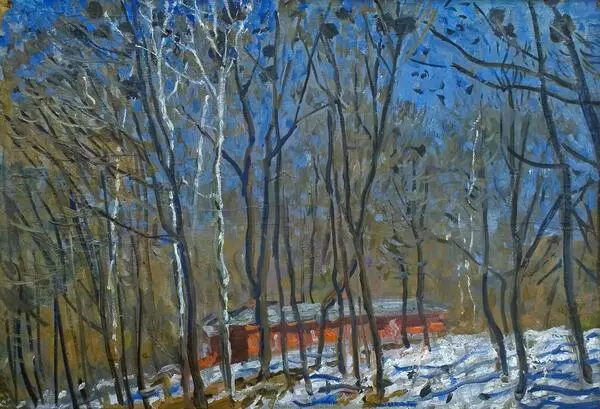Alexei and Sergei Tkachyov finished ‘On the Nameless High Point’ in 2005. They dedicated the painting to bravery of soldiers killed in the attempted capture of a nameless high point, 224.1 meters high. In this fight, eighteen soldiers pushed back the attack of over 200 Nazi soldiers over night.
The Battle of Smolensk took place in the autumn of 1943. The 224.1 meter high point near the village of Rubezhenka was of vital strategic importance as the path to the besieged city of Roslavl lay next to it. Well aware of this, the German commanders did all they could to strengthen their position there. They set up three rows of trenches and dotted them with machine gun nests. Furthermore more, the Nazi contingent was strengthened by two tanks and one self-propelled artillery gun. Surrounded by mine fields, the hill dominated the area and seemed impenetrable.
Soldiers from the 718th regiment had already unsuccessfully attempted to break through the enemy lines multiple times. Finally they decided to form a raiding party from volunteers. Under cover of night on 14 September 1943, eighteen fearless soldiers from Eighth Company set off towards the high point, lead by Sub-Lieutenant Evgeniy Poroshin. Their radio signal was ‘Luna’.
The volunteers caught the Nazis unaware. Hurling grenades into the first trench allowed them to progress further. There was supposed to be backup following them, but the enemy managed to gather themselves and cut off ‘Luna’ from the rest of Eighth Company. Poroshin’s unit managed to get to the top of the high point in full force and capture it, but they found themselves there alone, surrounded by the overwhelming strength of the enemy.
The struggle continued through the night. The soldiers endured lethal blows, but even so, they continued to fight. The guns only became quiet at sunrise. Sixteen soldiers, including their commander, were killed. The enemy lost over 200 soldiers.
In that night, “Luna” drew the substantial strength of the enemy towards it. In so doing, it allowed the 718th regiment to strike the Germans on their flanks and they pushed them back to the river Desna. By leading from the front in this fight, the group opened up the way to Roslavl.
The Battle of Smolensk took place in the autumn of 1943. The 224.1 meter high point near the village of Rubezhenka was of vital strategic importance as the path to the besieged city of Roslavl lay next to it. Well aware of this, the German commanders did all they could to strengthen their position there. They set up three rows of trenches and dotted them with machine gun nests. Furthermore more, the Nazi contingent was strengthened by two tanks and one self-propelled artillery gun. Surrounded by mine fields, the hill dominated the area and seemed impenetrable.
Soldiers from the 718th regiment had already unsuccessfully attempted to break through the enemy lines multiple times. Finally they decided to form a raiding party from volunteers. Under cover of night on 14 September 1943, eighteen fearless soldiers from Eighth Company set off towards the high point, lead by Sub-Lieutenant Evgeniy Poroshin. Their radio signal was ‘Luna’.
The volunteers caught the Nazis unaware. Hurling grenades into the first trench allowed them to progress further. There was supposed to be backup following them, but the enemy managed to gather themselves and cut off ‘Luna’ from the rest of Eighth Company. Poroshin’s unit managed to get to the top of the high point in full force and capture it, but they found themselves there alone, surrounded by the overwhelming strength of the enemy.
The struggle continued through the night. The soldiers endured lethal blows, but even so, they continued to fight. The guns only became quiet at sunrise. Sixteen soldiers, including their commander, were killed. The enemy lost over 200 soldiers.
In that night, “Luna” drew the substantial strength of the enemy towards it. In so doing, it allowed the 718th regiment to strike the Germans on their flanks and they pushed them back to the river Desna. By leading from the front in this fight, the group opened up the way to Roslavl.
